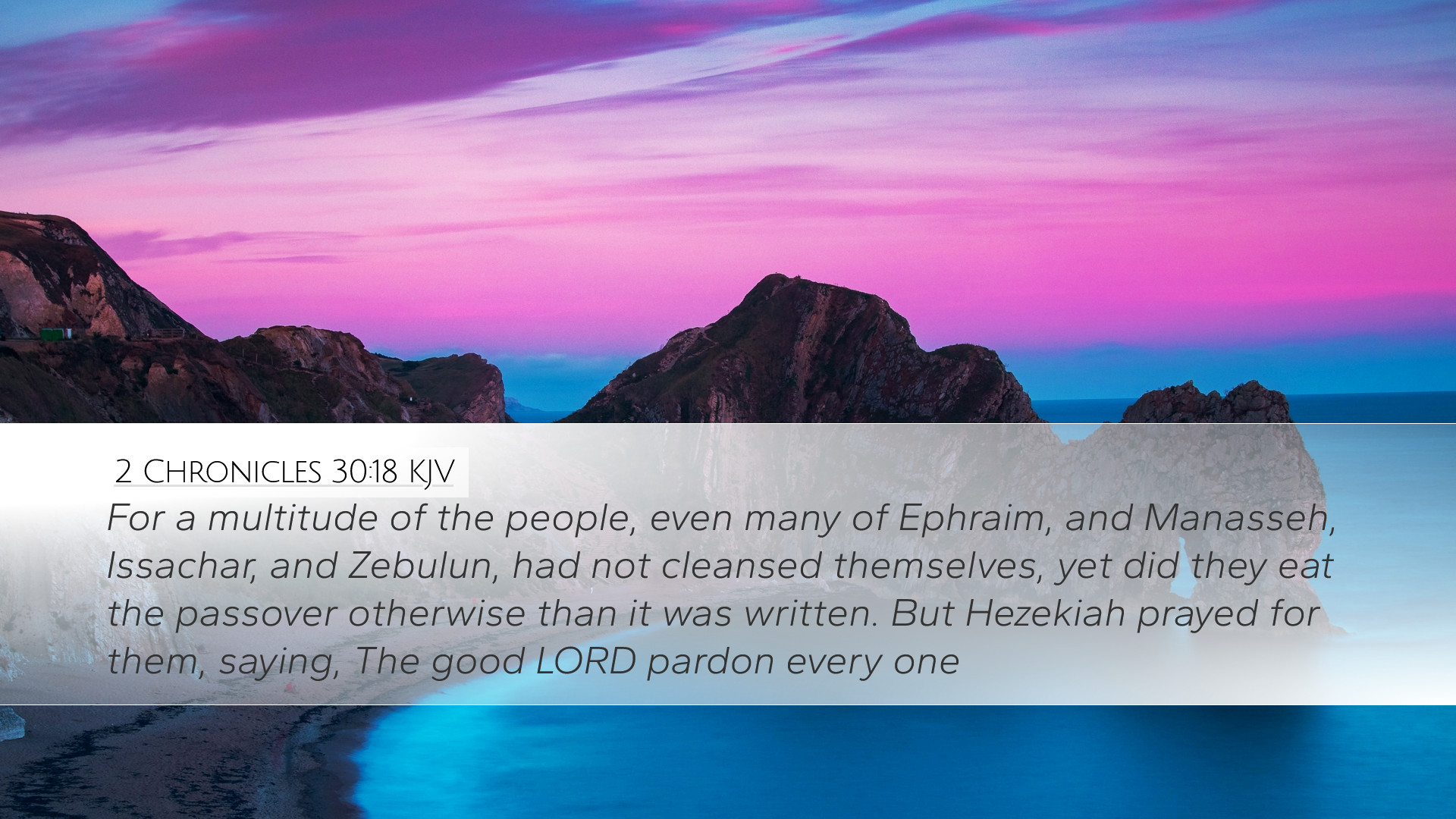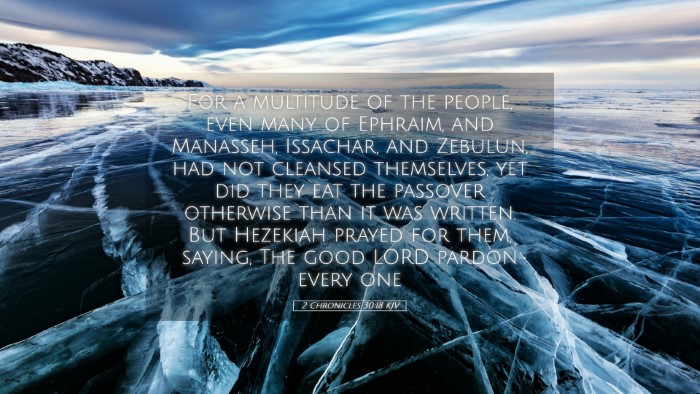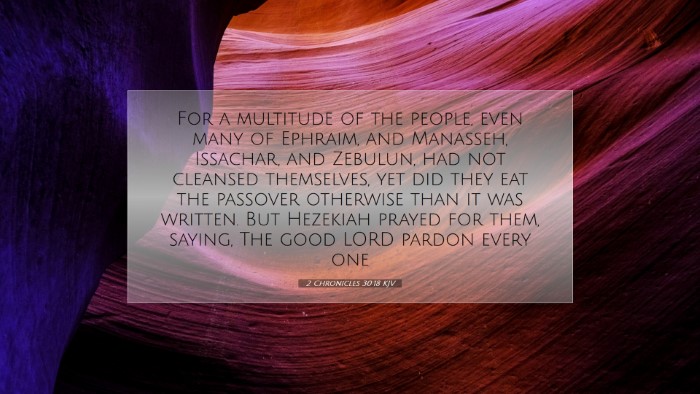Commentary on 2 Chronicles 30:18
Verse Context: 2 Chronicles 30:18 highlights the act of the people of Israel in celebrating the Passover amidst a backdrop of religious reform initiated by King Hezekiah. This verse provides a glimpse into the spiritual state of the nation and the importance of returning to proper worship.
Exegesis of the Text
This specific verse illustrates the challenges faced by a significant number of individuals as they congregated to partake in the Passover celebration. These people had not sanctified themselves as required according to scriptural standards, which raises questions regarding ritual purity and the broader implications of unpreparedness in approaching holy rites.
Theological Insights
- The Importance of Preparation: Commentators like Matthew Henry emphasize the necessity of being spiritually prepared before engaging in sacred acts. This sets a precedent for the importance of individual holiness and readiness in contemporary worship practices.
- God's Grace in Imperfection: Albert Barnes points out that despite the initial unpreparedness of many, the Lord’s mercy allows them to participate in the Passover. This reflects the nature of God's grace—acknowledging human shortcomings while still extending His invitation to partake in divine fellowship.
Historical Context
Understanding the historical situation surrounding King Hezekiah’s reign is crucial. The revival initiated by Hezekiah represented a significant shift back to true worship after years of idolatry. Adam Clarke notes that this was not merely a ritual act but a profound moment of national identity and religious renewal for Israel.
Practical Applications
- Inclusivity in Worship: The situation presented in this verse provides future generations with a model for inclusivity within the church. The gathering of those who were not fully prepared but still sought communion with God illustrates a welcoming church that opens its doors to all seeking grace.
- Rituals vs. Heart Condition: The act of participation in religious rituals must not overshadow the condition of one’s heart. According to Matthew Henry's insights, a pure heart behind the action is what ultimately matters to God.
Further Reflections
While examining the broader implications of this verse, consider the responsibilities of leadership within religious communities. Hezekiah acts decisively to restore worship, yet it is the people's heart posture towards God that brings about true revival. This dual responsibility highlights the interplay between divine sovereignty and human action.
Conclusion
The message of 2 Chronicles 30:18 transcends its historical setting. It urges modern believers to reflect on their spiritual readiness, the state of their congregations, and God's ever-present grace. For pastors and theologians, this narrative serves as a reminder that while preparation for worship is important, God's love and mercy constantly invite all to seek Him, regardless of their current state.
In closing, may the insights gleaned from 2 Chronicles 30:18 encourage deeper contemplation and earnest efforts towards personal and communal sanctity as the body of Christ continues to strive for holiness in worship.


